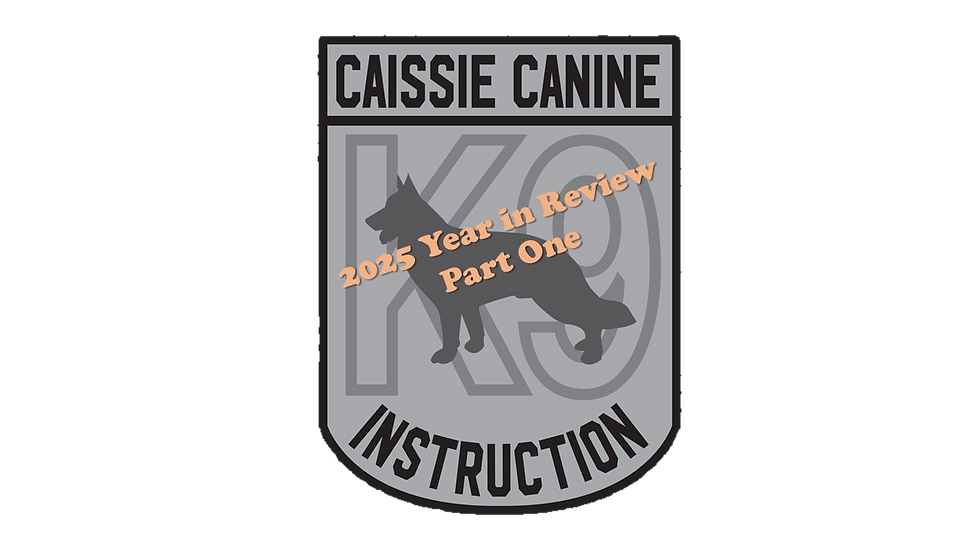Caissie Canine Instruction: What is Coprophagia?
- caissiecanineinstr

- Jan 10, 2022
- 2 min read

We begin this week’s “RUFF TAILS” featuring a beautiful Shepherd/Rottweiler mix named Murph.

Hi, I am Murph. My family says my favourite things to do are sleeping “in”, playing tug-o-war, chasing birds and squirrels, and being at the cottage. And that is ALL so true!!!!!
My family adopted me from the SPCA in Aurora. I was the “runt” in the litter, but look how big I am now!!!! I love my family.

Welcome to Doggie Dialogue:
Coprophagia in dogs is the scientific term for eating “poop.” For most dog owners, this is gross and upsetting to us, but this is very common in puppies and adolescent dogs. Unfortunately, many people will rehome their dog because of this behaviour.

Puppies often will engage in this behaviour, about a month after being born, mimicking their mother, as she will “clean up” after her pups. Eating their own poop is usually harmless, however eating other animals’ poop can cause health problems.
Puppies and some adolescent dogs find horse manure and goose dropping quite appealing. Other animal stools can be contaminated with viruses, toxins, or even parasites.

Most puppies and/or dogs seem to be more attracted to hard stools, oppose to soft poop or diarrhea. At this time of year frozen poop is one of their favourites. (Clients will call them “poopsicles” lol)
Dogs with coprophagia should be assessed by your vet to rule out malabsorption syndrome, thyroid disease, a deficient in nutrients, and/or parasites. Your veterinarian may recommend a vitamin B or enzyme supplement.

In some cases, dogs will start to eat their own poop because of stress or a behavioural trigger. These triggers can be anxiety, small confinement, isolation, and/or attention seeking.
The best way to assist your canine with this behaviour is to keep a clean “living area” for your dog. Pick up the poop immediately.

Encourage your canine to come back to you for a “tasty dog biscuit” instead of him/her eating their poop. This will help your canine develop a “new habit” to run back to you for a healthier option.




Comments